Why you should choose True Refrigeration’s upright cabinets
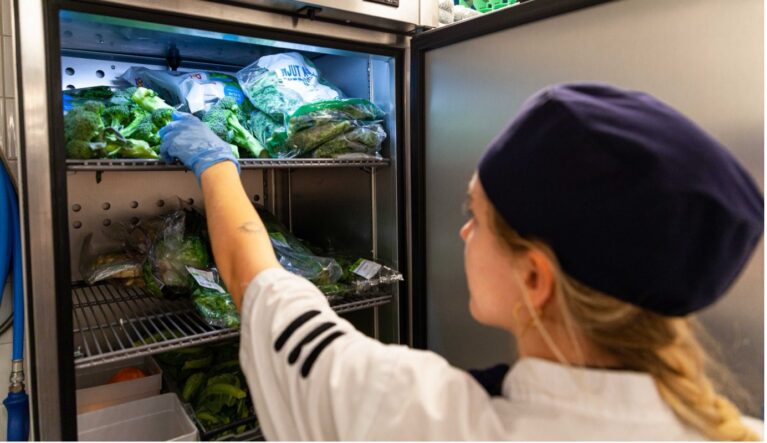
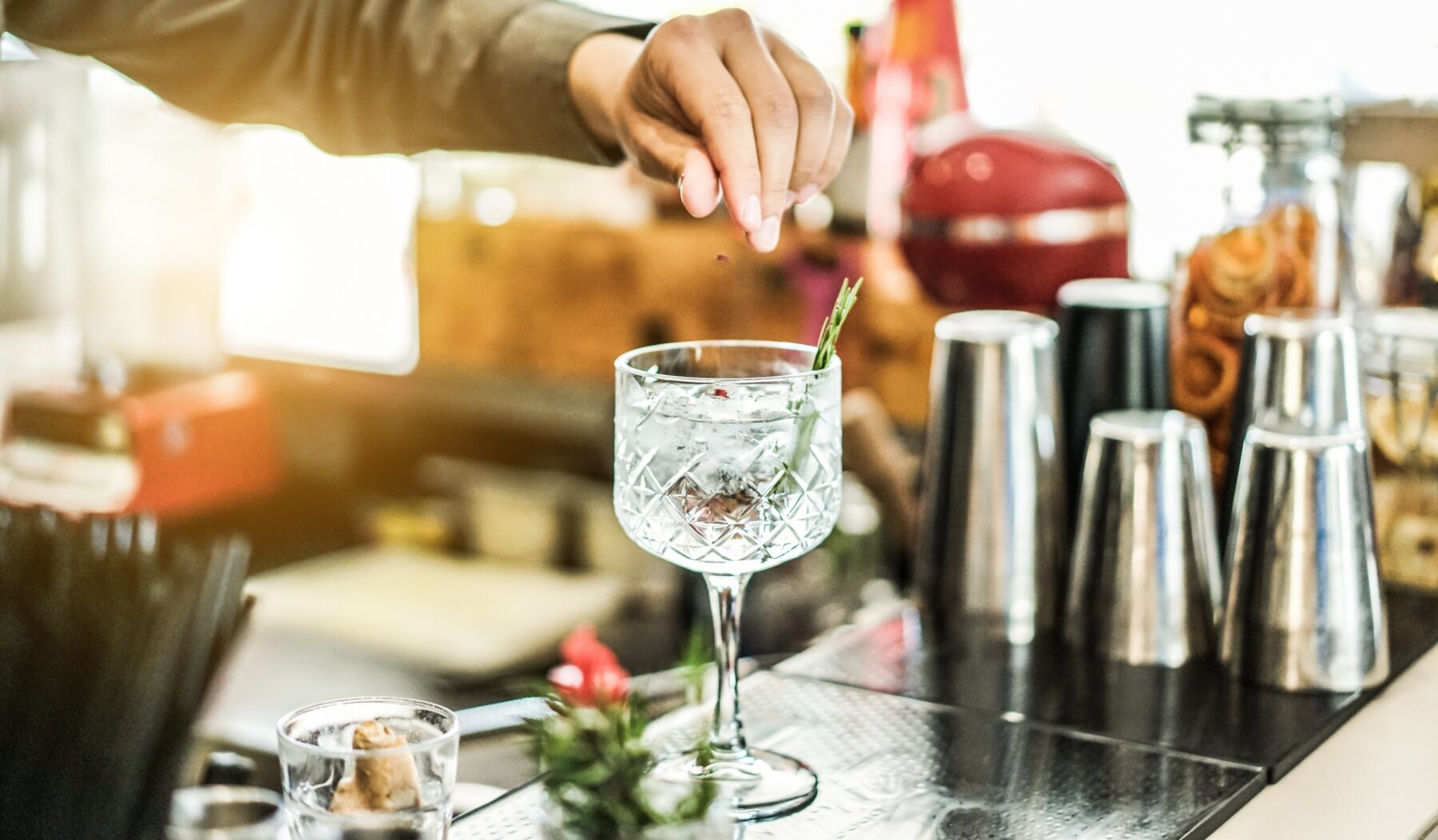
The premium end of the drinks market is big business.
Recent research from consumer insight organisation CGA found that two-in-five (43%) of all ‘out of home’ drinkers are opting for premium drinks brands, a figure which rises to 54% in the 18-34 age group.
The research also revealed that sales of spirits that are classified as ‘super-premium’ increased by 12% in the first six months of this year.
Boutique, small-batch and artisan spirits, especially gins, have driven the trend in the spirits market, but a similar trend is also apparent in the beer market, where craft beer sales volumes increased by 14.5% in the first half of 2017.
The report revealed that premium drinkers spend an average of £116 a month on eating and drinking out, compared to an average of £92 for all consumers.
And it’s not only premium tipples that have seen growth. A separate report by global professional services giant PwC found that the market for premium or artisan soft drinks is also fizzing, with the biggest brands all increasing their sales in recent years.
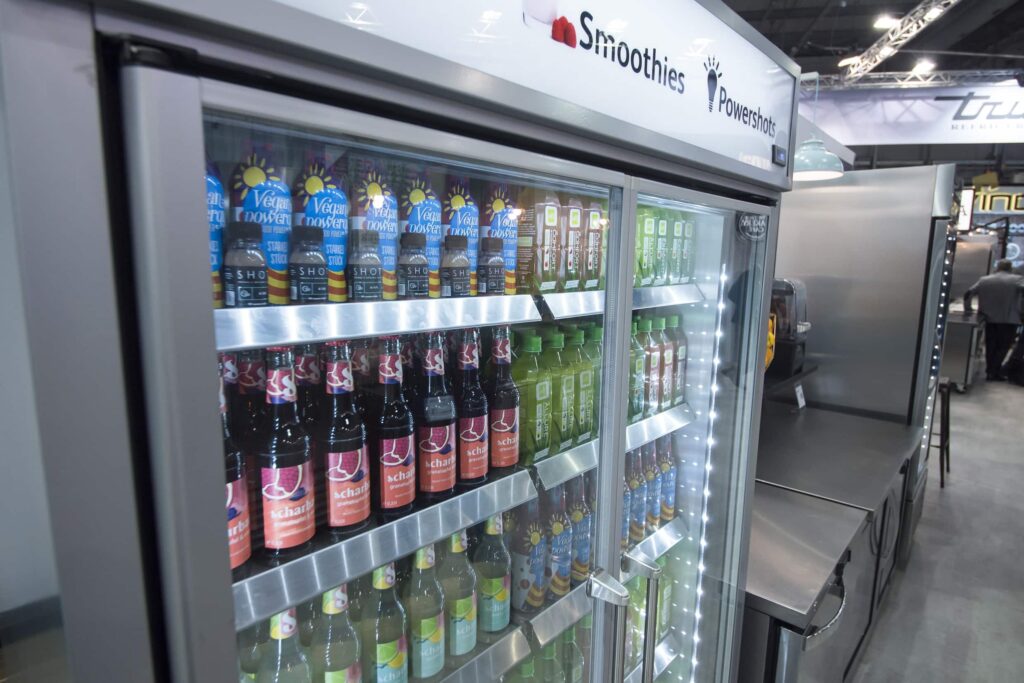
Premium soft drink sales are also on the rise
The biggest of these increased its revenues by a massive 72%, to £59.3m, in 2016.
Glass door fridges have a prominent place behind any bar.
Their benefit is two-fold – they chill the drinks so they’re nice to drink, and the glass doors and lighting allow you to really show them off and create displays which entice customers to give them a try.
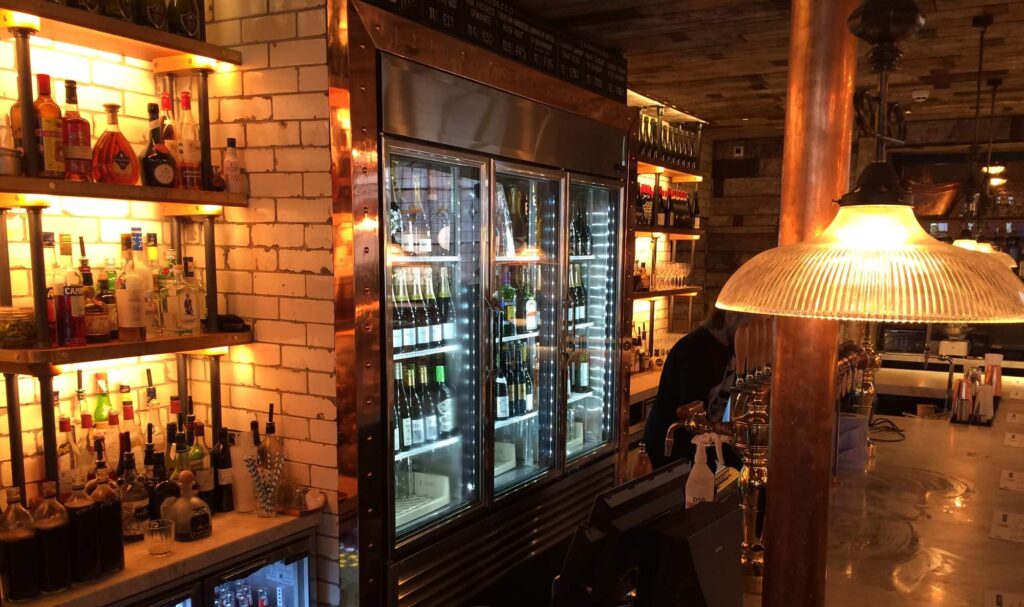
True can customise your refrigerator to your brand
So, how can your hospitality business benefit and take a slice out of this fast-growing market segment?
It all comes down to choice and experience.
The choice of drinks offered by pubs, bars and restaurants must meet the demands of premium drinkers looking for high quality and fresh experiences.
Premium drinkers are willing to pay extra for the right brand—but the drink, service and overall experience still has to deliver value for money.
The CGA research found that those who drink high-quality brands are content to spend more, on average, than the all consumer average.
They are also ten per cent more likely to try new drinks than the British average, provided they deliver the enhanced experience they seek.
So, when you’re sketching out your bar design ideas, it’s important to ensure that the overall customer experience your venue offers can meet those expectations.
Easy-to-clean, durable stainless steel will always be popular in kitchens behind the scenes, but bespoke front of house solutions are certainly increasing in demand and popularity as designers come up with more ideas to customise their refrigeration.
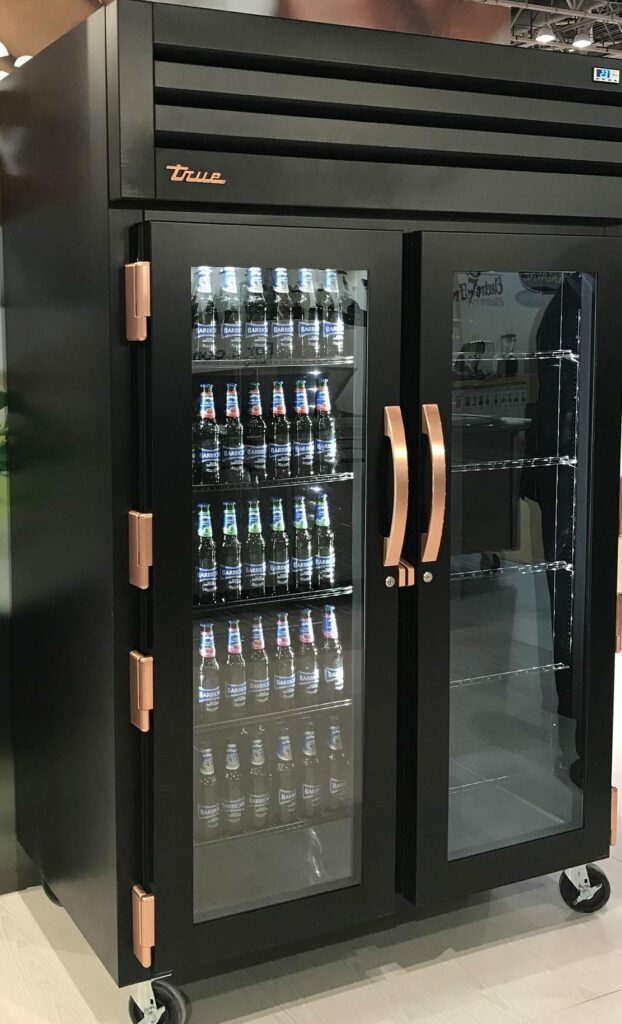
At True, we offer a number of options which incorporate more design-led features, to support customers who want to have a more customised look.
Our powder coating process can be applied externally and internally to most products, providing a solid colour option based on standard RAL codes– perfect for displaying high-end drinks brands – and highlight options such as bronzed handles and hinges add further design flourish.
When it comes to the layout of your bar, you may think it’s important that your back bar displays are set up to give your staff easier access to your most popular products.
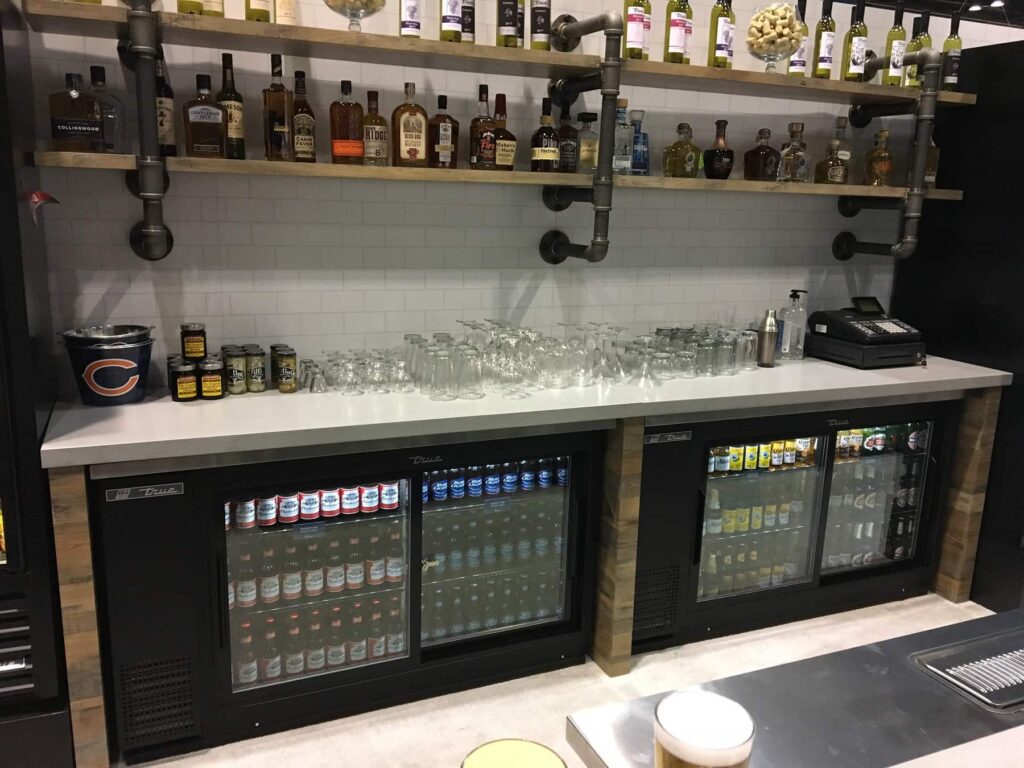
True’s display units can be configured to suit your bar
For your brand, however, this space may be better utilised to showcase the premium products you have on offer.
Wasted space is wasted money, and your back bar and display cabinets are your shop window in which to showcase the products which drive your sales.
The majority of drinks purchases can be split into one of three categories – speciality, impulse and demand.
With this in mind, it’s important to get the balance of your displays right.
Speciality items – unique, exclusive or unusual drinks brands – should be placed in hot spots, which have high visibility and will be tempting to your customers.
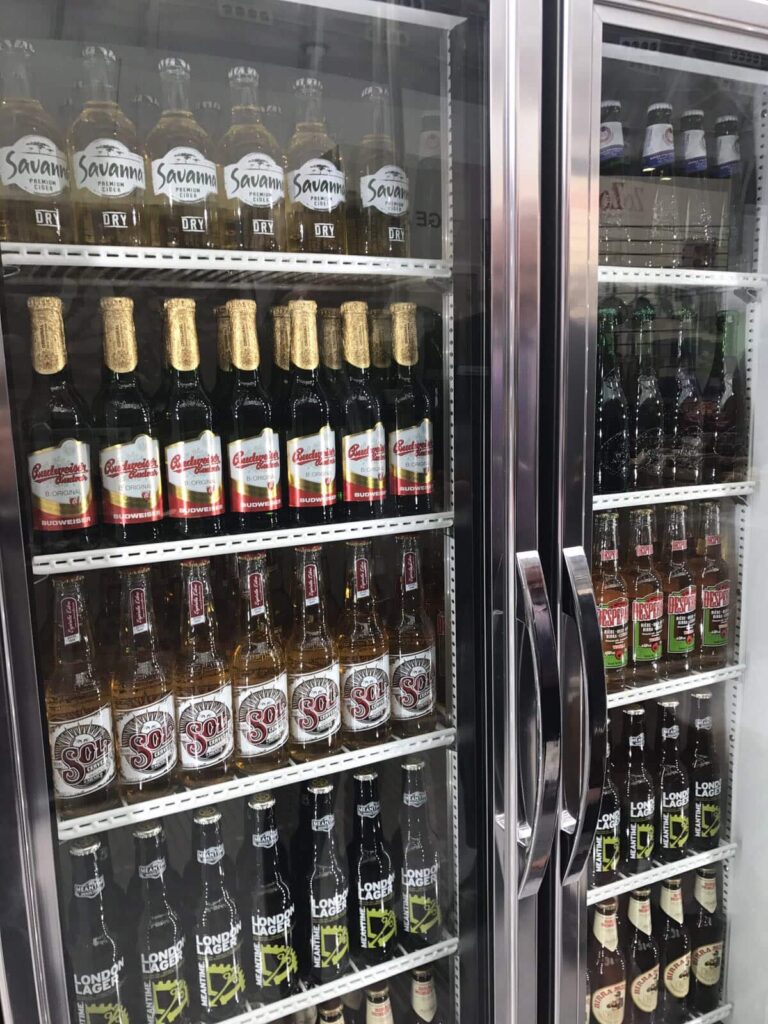
Speciality drinks should be at the centre of your display
The same rule applies to impulse buys – these might be limited edition flavours or new brands which your customers may want to try instead of their regular tipple.
Your demand items – regular mixers, bottles and soft drinks – can be displayed within easy access, but if the demand is always there for these products, you won’t be adding any further value by prioritising them over your higher-margin premium options.
True’s range of under bar storage cabinets offer compact storage capacities and easy access, freeing up vital space in your more visible displays to showcase your bigger ticket items and hiding cocktail juices, milk and other less visually-appealing products out of the sight of your customers.
Do your refrigeration and display units blend in with or complement their surroundings?
Do they give your venue a premium feel?
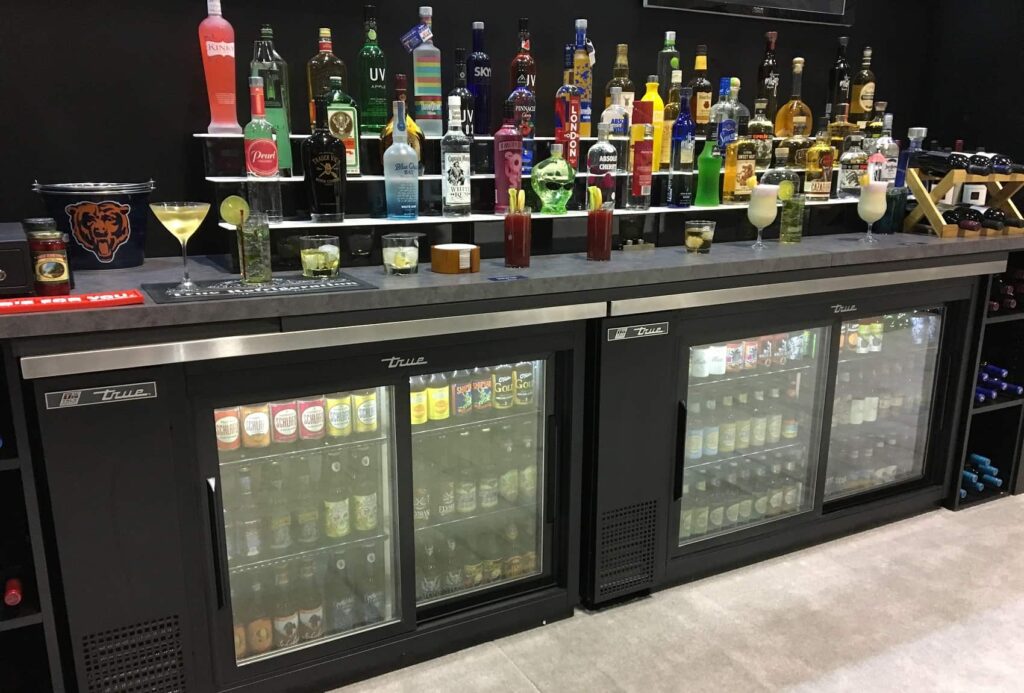
Does your refrigeration give your bar a premium feel?
Serving your drinks at their optimum temperature is key to the overall experience you offer to your customers.
While there is no ‘one size fits all’ solution that covers your entire range, it’s generally accepted that the myriad compounds in most beers can start to break down at temperatures above 5°C and cause them to lose their unique aroma and flavour characteristics. A similar thing happens to white wine, which is also always best served chilled.
Hydrocarbon technology makes True’s range of display units more energy efficient, delivering lower utility costs and the industry’s most consistent temperature control.
If you’re planning on redesigning your bar, talk to a professional consultant or design house. One of the key elements to the design of a bar is capturing the interest of the customer so that they stay for the evening rather than move onto another bar.
A professional with expertise in bar design will help you create functional interiors that visually stimulate the senses.
For more hints, tips and ideas, follow us on Facebook, Twitter, LinkedIn and Instagram.